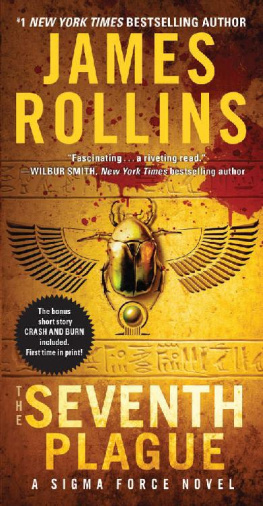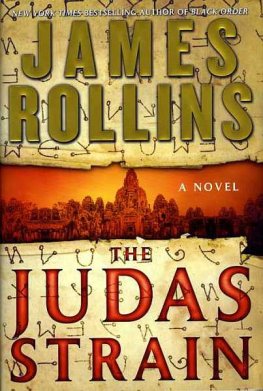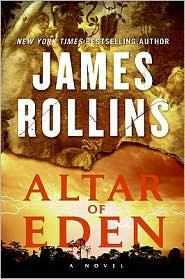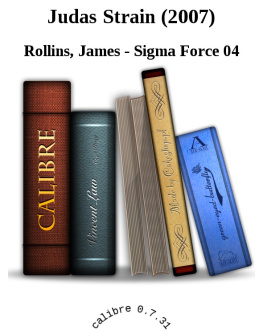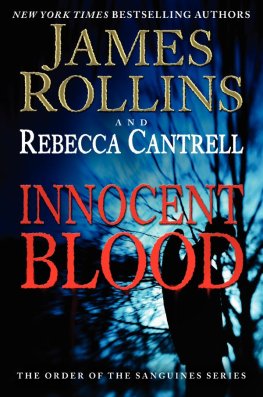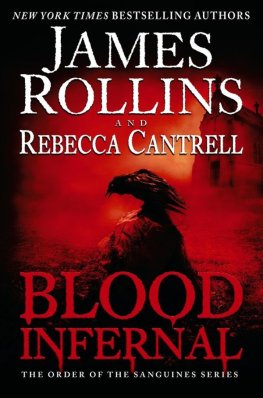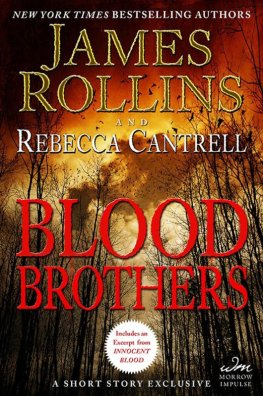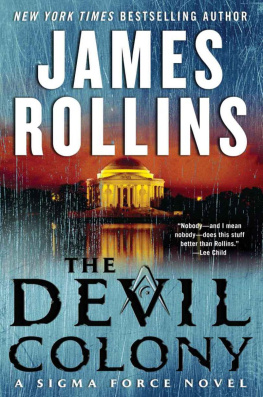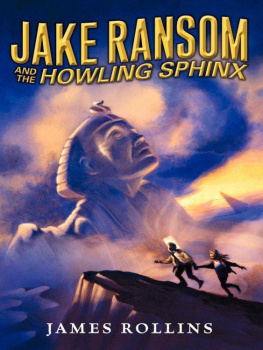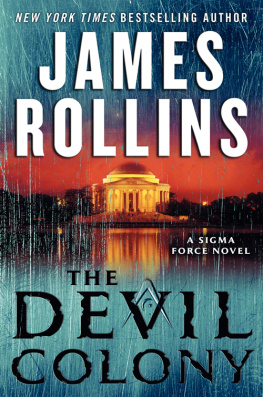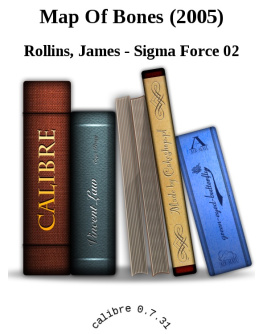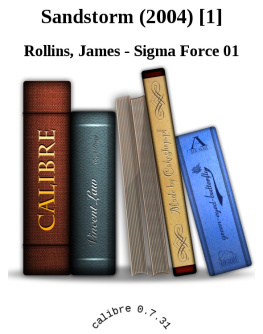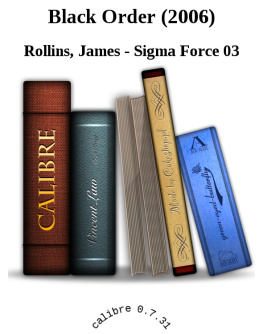James Rollins - The Seventh Plague
Here you can read online James Rollins - The Seventh Plague full text of the book (entire story) in english for free. Download pdf and epub, get meaning, cover and reviews about this ebook. year: 2016, publisher: HarperCollins, genre: Detective and thriller. Description of the work, (preface) as well as reviews are available. Best literature library LitArk.com created for fans of good reading and offers a wide selection of genres:
Romance novel
Science fiction
Adventure
Detective
Science
History
Home and family
Prose
Art
Politics
Computer
Non-fiction
Religion
Business
Children
Humor
Choose a favorite category and find really read worthwhile books. Enjoy immersion in the world of imagination, feel the emotions of the characters or learn something new for yourself, make an fascinating discovery.
- Book:The Seventh Plague
- Author:
- Publisher:HarperCollins
- Genre:
- Year:2016
- Rating:5 / 5
- Favourites:Add to favourites
- Your mark:
- 100
- 1
- 2
- 3
- 4
- 5
The Seventh Plague: summary, description and annotation
We offer to read an annotation, description, summary or preface (depends on what the author of the book "The Seventh Plague" wrote himself). If you haven't found the necessary information about the book — write in the comments, we will try to find it.
The Seventh Plague — read online for free the complete book (whole text) full work
Below is the text of the book, divided by pages. System saving the place of the last page read, allows you to conveniently read the book "The Seventh Plague" online for free, without having to search again every time where you left off. Put a bookmark, and you can go to the page where you finished reading at any time.
Font size:
Interval:
Bookmark:


Thanks to my Mom and Dad,
Ronald and Mary Ann,
For their inspiration, their unconditional support,
and their lifelong example of how to love...
now together again, forever in peace.
A long litany of people helped make this book betterthrough their help, guidance, criticisms, encouragement, and, most important, their enduring friendship. I must thank my critique group, that close-knit bevy of readers who serve both as my initial editors and who are not above holding my feet to the fire to make me push farther and dig deeper: Sally Ann Barnes, Chris Crowe, Lee Garrett, Jane ORiva, Denny Grayson, Leonard Little, Judy Prey, Caroline Williams, Christian Riley, Tod Todd, Chris Smith, and Amy Rogers. And, as always, a special thanks to Steve Prey for the great maps... and to David Sylvian for making sure I put my best foot forward at all times... and to Cherei McCarter for the many great historical and scientific tidbits found within these pages! And of course, to everyone at HarperCollins for always having my back, especially Michael Morrison, Liate Stehlik, Danielle Bartlett, Kaitlin Harri, Josh Marwell, Lynn Grady, Jeanne Reina, Richard Aquan, Tom Egner, Shawn Nicholls, and Ana Maria Allessi. Last, of course, a special acknowledgment to the people instrumental to all levels of production: my editor, Lyssa Keusch, and her colleague Priyanka Krishnan; and my agents, Russ Galen and Danny Baror (along with his daughter Heather Baror). And, as always, I must stress that any and all errors of fact or detail in this book, of which hopefully there are not too many, fall squarely on my own shoulders.
And Moses said unto his people, Remember this day, in which you came out from Egypt, from the house of slavery; for the LORD brought you out of here by the strength of His hand....
Exodus 13:3
F ew stories in the Bible are as harrowing or as often retoldboth in print and on screenas the story of Moses. Starting with his fateful salvation as a baby, when he was floated in a reed basket into the arms of Pharaohs daughter, to his later confrontation with that same Pharaohs son, Moses became a figure of legend. To free the Jewish tribes from slavery, he afflicted Egypt with ten plagues and eventually parted the seas and led his people through the desert for forty years, delivering the Ten Commandments as a template for a new system of laws.
But did any of this truly happen? Most historians, even many religious leaders, have discounted the story of Exodus as a myth, a moral lesson rather than a historical reality. As support for this stance, skeptical archaeologists point to the lack of Egyptian sources in documenting any series of plagues or a mass exodus of slaves, especially within the time frame indicated in the Bible.
Yet now, recent discoveries along the Nile suggest that such naysayers may be wrong. Could there truly be evidence supporting the story of Moses, of a great exodus from Egypt, of miracles and curses? Could the ten plagues of Egypt have truly occurred? The startling answers found within these pages are based on facts as solid as the name Israel found carved into the stela of Ramesses the Greats son.

And if the plagues of Egypt could have truly happenedcould they happen again, only on a global scale?
The answer to that is a frightening... yes.
Climate is what we expect, weather is what we get.
attributed to Mark Twain
T hings are heating up of latenot just in regard to global temperatures but also in regard to the debate about climate change. In the last few years, the question has evolved from Is climate change real? to What is causing it and can anything be done about it? Even many former skeptics now recognize that something is happening to our planet, what with glaciers melting worldwide, Greenlands ice pack vanishing at a breakneck pace, and oceans steadily warming. Even the weather is growing more extreme, from persistent droughts to massive flooding. As reported in February 2016, Alaska experienced its second-warmest winter on record, with temperatures more than 10 degrees Fahrenheit above average, and in May of that same year, satellite measurements of the arctic ice cap revealed that it had dwindled to the lowest level ever recorded.
But the more frightening questionand one explored in this novelis Where are we headed next? The answer is a surprising one, little talked about, but based on concrete evidence and scienceand most shocking of all, its happened before. So whether skeptic or believer, to be forewarned is to be forearmed. Its time to learn the staggering truth about the future of our planet.
And the LORD spake unto Moses, Say unto Aaron, Take thy rod, and stretch out thine hand upon the waters of Egypt, upon their streams, upon their rivers, and upon their ponds, and upon all their pools of water, that they may become blood; and that there may be blood throughout all the land of Egypt, both in vessels of wood, and in vessels of stone.
E XODUS 7:19
Denial aint just a river in Egypt.
M ARK T WAIN

Nubian Desert, South of Egypt
T he high priestess knelt naked in the sand and knew it was time. The omens had been building, growing more dire, becoming certainty. To the west, a sandstorm climbed toward the sun, turning the days blue sky into a dusty darkness, crackling with lightning.
The enemy was almost upon them.
In preparation, Sabah had shaved all the hair from her body, even the brows above her painted eyes. She had bathed in the waters to either side, two tributaries that flowed north out of the deeper desert and joined at this sacred confluence to form the mighty river that the ancient kings of heqa khaseshet called the Nahal. She pictured its snaking course as it flowed past Luxor, Thebes, and Memphis on its way to the great blue sea that stretched past the rivers fertile delta.
Though she had never set eyes upon that region, she had heard tales.
Of our old home, a place of green fields, palms, and a life ruled by the rhythmic flooding of the Nahal...
It was from those lands that Sabahs people had fled over a century ago, escaping the time of plagues, starvation, and death, chased by a pharaoh now long dead. Most of the other tribes in the delta had sought refuge in the deserts to the east, conquering the lands out there and creating a kingdom of their ownbut her tribe had lived in an area farther south along the river, near the village of Djeba, in the Upper Egyptian district of Wetjes-Hor, known as the Throne of Horus.
During the time of darkness and death, her tribe had uprooted itself and fled up the river, beyond the reach of the Egyptian kingdom and into the Nubian Desert. Her tribe had been scholars and scribes, priests and priestesses, keepers of great knowledge. They had retreated into the empty ranges of Nubia to protect such knowledge during the turbulent times that followed the plagues, when Egypt was beset and overrun by foreigners from the east, a fierce people with faster chariots and stronger bronze weapons who conquered the weakened Egyptian towns with barely an arrow fired.
Font size:
Interval:
Bookmark:
Similar books «The Seventh Plague»
Look at similar books to The Seventh Plague. We have selected literature similar in name and meaning in the hope of providing readers with more options to find new, interesting, not yet read works.
Discussion, reviews of the book The Seventh Plague and just readers' own opinions. Leave your comments, write what you think about the work, its meaning or the main characters. Specify what exactly you liked and what you didn't like, and why you think so.

